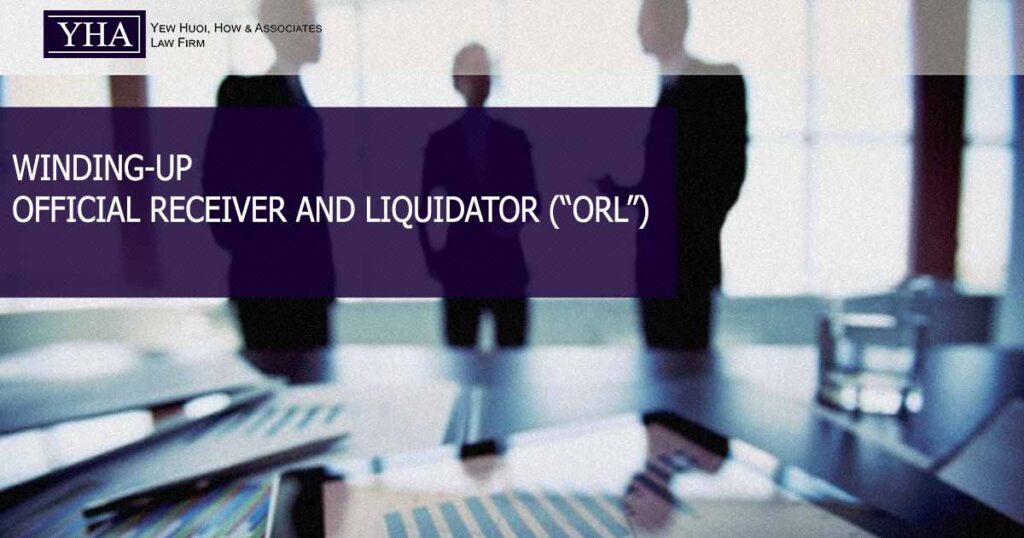1. Responsibilities of the Official Receiver and Liquidator in Mandatory Company Liquidation:
In cases of compulsory winding up, the court would appoint a liquidator under s.478 of the Companies Act 2016 (“CA 2016”) to expeditiously recover and realise the assets of the wound-up company for the distribution of dividends to creditors and administer any outstanding matters involving the wound up company.
If the court does not appoint a person as liquidator, the ORL will become the interim liquidator by virtue of s.477(1)(a) of CA 2016. As an officer of the court that is entrusted to deal with the company’s property, the ORL holds a duty to account all action taken in dealing with the company’s assets. In implementing the duty, due diligent, transparency and accountability of all aspects of insolvency practice are paramount and indispensable.
It is beneficial to glance through Malaysian Department of Insolvency’s website (mdi.gov.my) to find out the role and duty of ORL.
2. How the ORL Fulfills Responsibilities in Administering and Examining the Affairs of Court-Liquidated Companies:
- The ORL must diligently investigate the company’s records to accurately ascertain the ownership of the company’s properties.
- Relying solely on land searches for property ownership verification is insufficient and does not align with the ORL’s primary duty to thoroughly investigate the company’s affairs.
- The ORL must therefore take comprehensive measures to confirm that properties are indeed owned by the company undergoing liquidation.
3. Illustrative Scenario:
Company X, a developer, sold a property to individual Y under a sale and purchase agreement, with the property’s strata titles listing Company X as the registered owner. Subsequently, Company X was liquidated by the court. In such cases, an ORL appointed by the court cannot sell the property to a third party based only on land searches of the title documents, especially if individual Y’s name is not listed on these documents.
4. Case
Malayan Produce Company Sendirian Bhd v Landbanq Sdn Bhd (in liquidation) & Anor [2023] 6 MLJ 840

